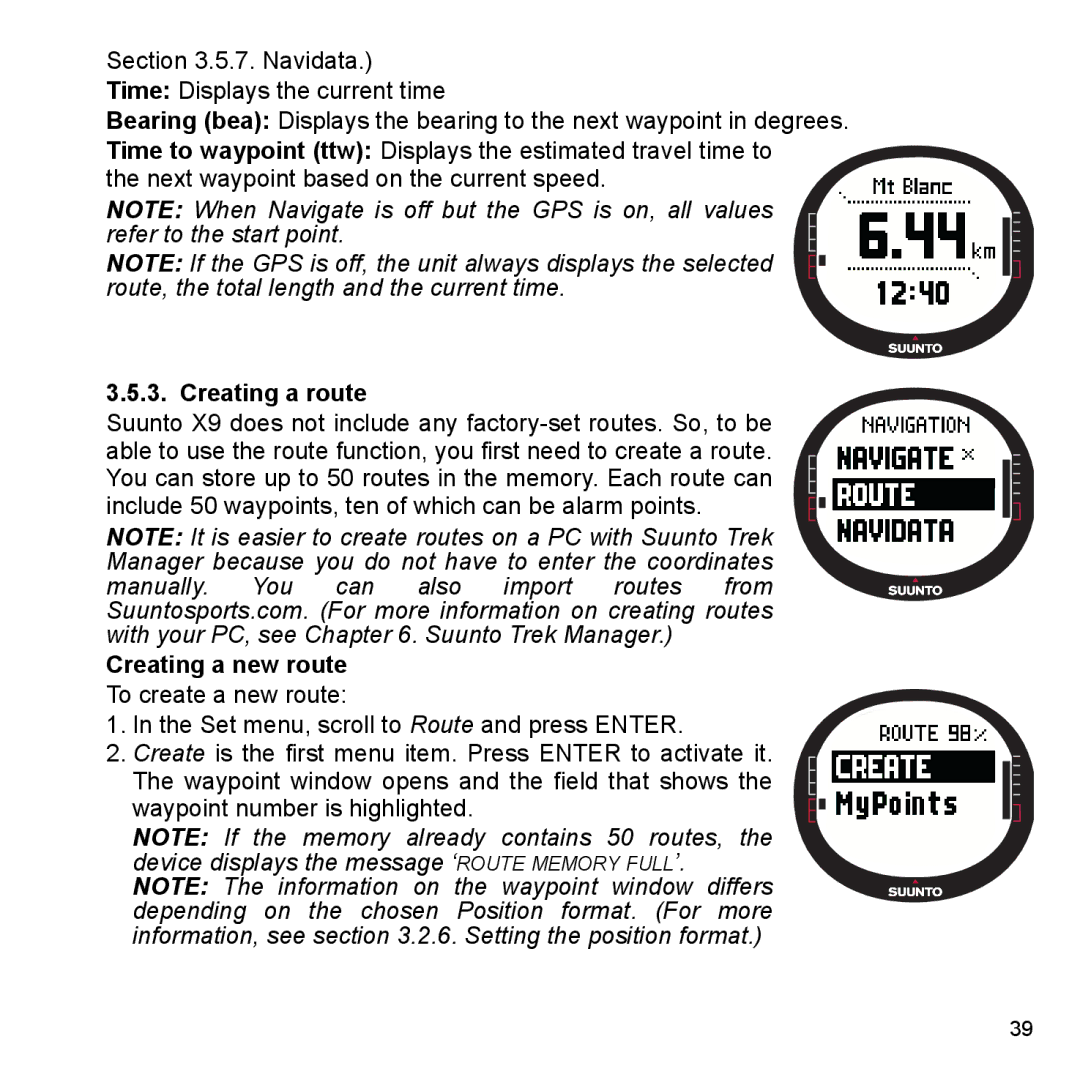
Section 3.5.7. Navidata.) Time: Displays the current time
Bearing (bea): Displays the bearing to the next waypoint in degrees.
Time to waypoint (ttw): Displays the estimated travel time to the next waypoint based on the current speed.
NOTE: When Navigate is off but the GPS is on, all values refer to the start point.
NOTE: If the GPS is off, the unit always displays the selected route, the total length and the current time.
3.5.3. Creating a route
Suunto X9 does not include any
NOTE: It is easier to create routes on a PC with Suunto Trek Manager because you do not have to enter the coordinates manually. You can also import routes from Suuntosports.com. (For more information on creating routes with your PC, see Chapter 6. Suunto Trek Manager.)
Creating a new route
To create a new route:
1.In the Set menu, scroll to Route and press ENTER.
2.Create is the first menu item. Press ENTER to activate it.
The waypoint window opens and the field that shows the waypoint number is highlighted.
NOTE: If the memory already contains 50 routes, the device displays the message ‘ROUTE MEMORY FULL’. NOTE: The information on the waypoint window differs depending on the chosen Position format. (For more information, see section 3.2.6. Setting the position format.)
39
